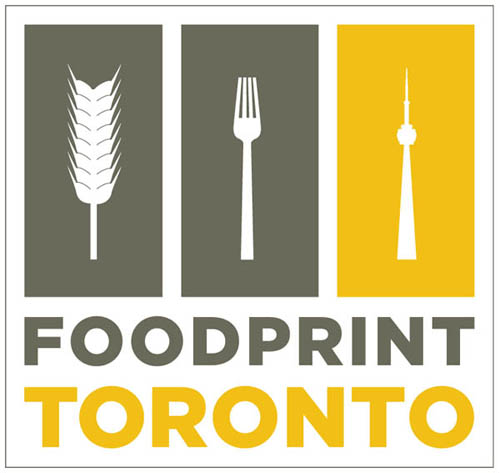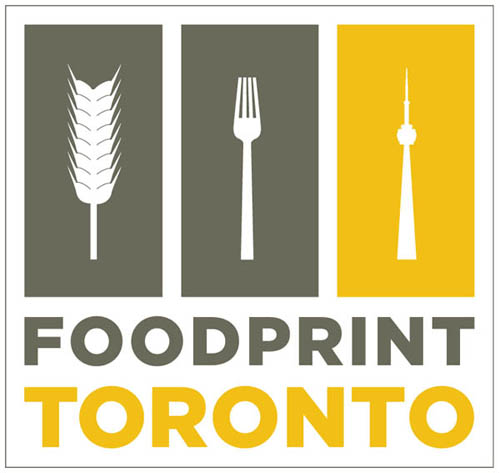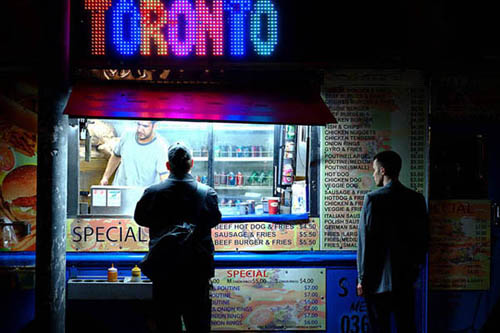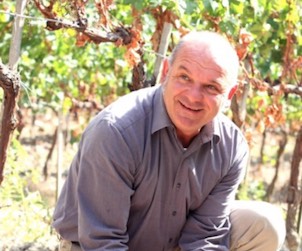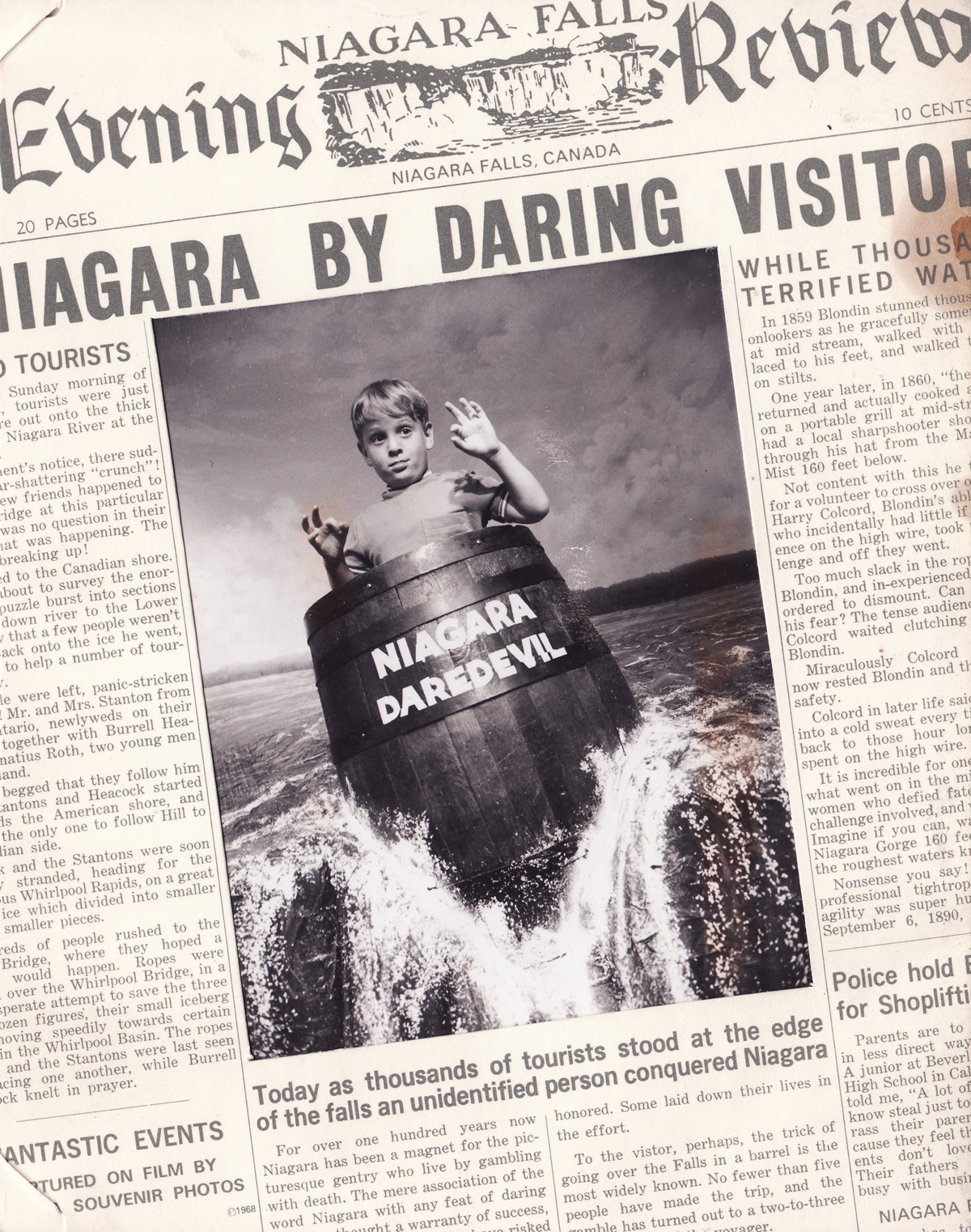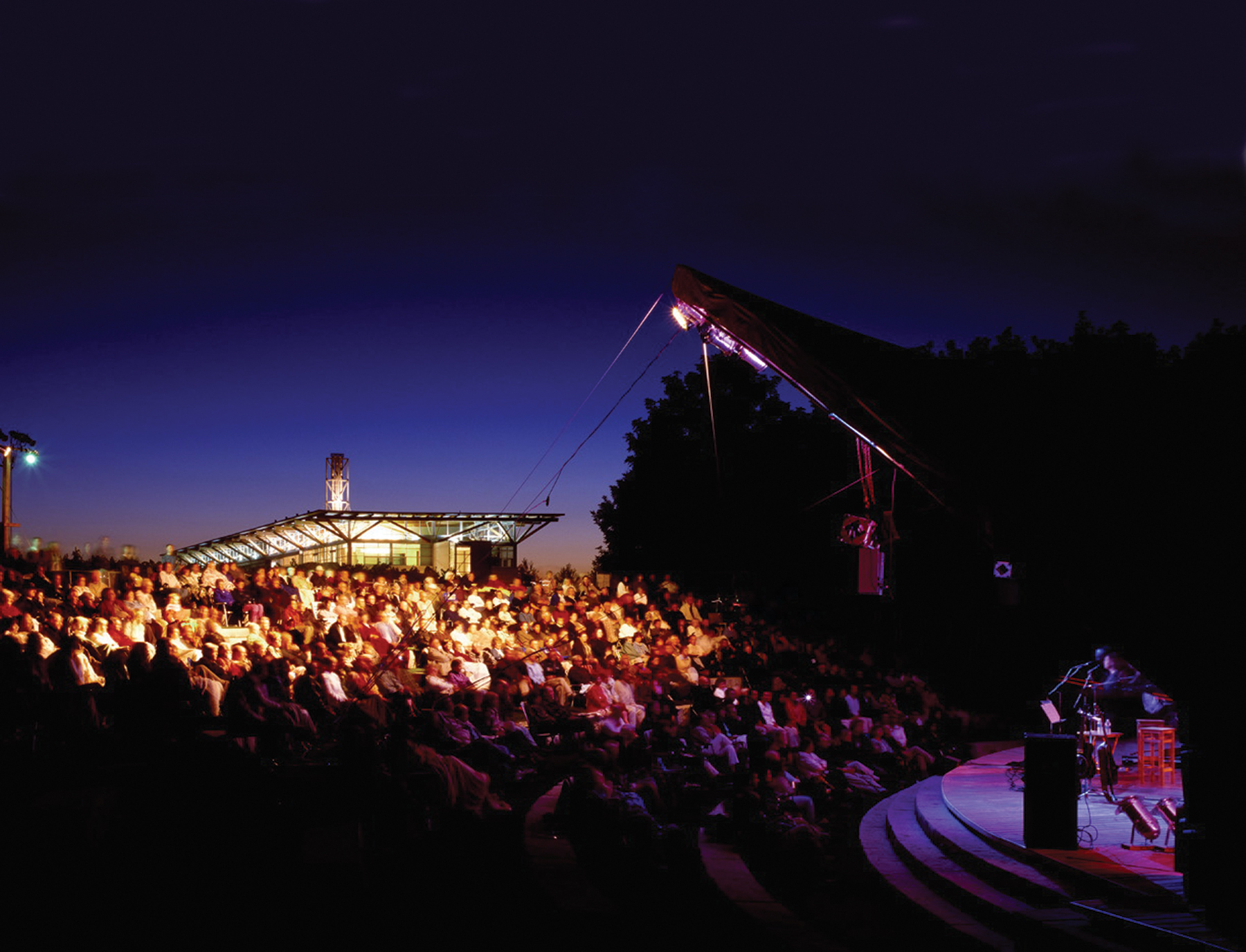Join Foodprint on Saturday, July 31, in Toronto, for their next Foodprint Project event.
Foodprint Toronto is the second in a series of international conversations about food and the city. With the Toronto Board of Health having just formally adopted a new city-wide food strategy, the timing is perfect for a truly cross-disciplinary discussion that explores the past, present, and future of food and the city. From the fight for street food to the transportation infrastructure of the Ontario Food Terminal, and from the evolution of school meals to the challenge of scaling up urban agriculture, panelists will explore the forces that shape Toronto’s food and speculate on how to feed Toronto in the future.
Date: Saturday, July 31
Time: 12:30 p.m. to 5:00 p.m.
Location: Artscape Wychwood Barns (map)
Cost and Registration: No registration is required, there will be a $5 admission fee at the door
Program Schedule:
Zoning Diet: Jessica Duffin Wolfe, Barbara Emanuel, Pat Pessotto, Lola Sheppard
Culinary Cartography: Laurel Atkinson, Mark Fram, Chris Hardwicke, Darren O’Donnell
Edible Archaeology: Natasha & Andrew Akiwenzie, Shawn Micallef, Rebecca O’Neill, Robert Wright
Feast, Famine, and Other Scenarios: Evan D. G. Fraser, John Knechtel, Kathryn Scharf, Michael Wolfson
Watch live online thanks to our volunteer videographer, Kevin Lisoy.
Zoning Diet
(12:30 to 1:30 p.m.)
How do zoning, policy, and economics shape Toronto’s food systems?
Jessica Duffin Wolfe
Jessica Duffin Wolfe is Arts and Books Editor at Spacing Magazine and a member of the Editorial Board of POV, the magazine of the Documentary Organization of Canada. She recently completed her first novel, while her first short film, BERLIN, opened the Rooftop Film Festival in New York in 2008. She is currently pursuing doctoral studies at the University of Toronto, where she runs the graduate student speaking series WIDEN (Workshops for Inter-Discipline Exchange & Novelty).
Barbara Emanuel
Barbara Emanuel is Senior Policy Advisor at the Toronto Board of Health, and co-author of the City’s new food strategy report, Cultivating Food Connections: Towards a Healthy and Sustainable Food System for Toronto. Barbara has many years of experience working on social and public health policy issues including housing and homelessness, income security, and most recently food. She brings a multi-disciplinary approach to her work and sees food as an effective vehicle for realizing a variety of city building goals.
Pat Pessotto
Pat is Vice President of Merchandising at Longo Brothers Fruit Markets Inc. (Longo’s), a Toronto-based, family-owned grocery store chain founded in 1956. Pat has been with Longo’s since 1982, working in the store environment for ten years before being promoted to Head Office. As Director, he was actively involved in the planning and execution of all grocery merchandising strategies. In his current role as Vice President of Merchandising, Pat continues to oversee numerous departments ranging from grocery to prepared foods throughout our twenty-two locations. An alumni of the Queen’s Executive Program, Pat is also a member of Longo’s Planning Committee Team and is involved in the decision making of all aspects of the company’s initiatives. Pat also is a member of the Grocery Foundation / Crohn’s & Colitis SuperGala Committee.
Lola Sheppard
Lola Sheppard is founding partner of Lateral Office, a Toronto-based architecture practice, andInfraNet Lab, a research laboratory examining the relationship between urbanism and resources that maintains a popular blog as well as the annual journal [bracket]. Lateral Office/InfraNet Lab was recently awarded the Professional Prix de Rome in Architecture for 2010 by the Canada Council for the Arts. Lola Sheppard is also Assistant Professor of Architecture at the University of Waterloo, where her interests in infrastructure and land-use have led her to reconsider the Greater Toronto Area”s food-flows and Greenbelt.
Moderator: Nicola Twilley, Edible Geography
Culinary Cartography
(1:30 to 2:30 p.m.)
What can we learn when we map Toronto using food as the metric?
Laurel Atkinson joined Not Far From The Tree in 2009 as the Parkdale High Park Hub Coordinator, and is the Program Coordinator this year. She is currently pursuing her Masters in Environmental Studies, focusing on the activism and uses of public spaces in Toronto by community groups. Not Far From The Tree is a residential fruit-picking program that coordinates teams of volunteers to pick fruit from trees that would otherwise go to waste, and distributes it evenly between the volunteer gleaners, the fruit tree owners, and local food banks or social service agencies. Not Far From The Tree is currently laying the groundwork to develop a public fruit tree mapping system for Toronto.
Mark Fram
Mark Fram is an architectural consultant, designer and urban planner. He has studied, written, spoken, and taught extensively on the subjects of architecture, historic preservation, and the history and planning of buildings and cities; his recent essay in The Edible City retraced the geography of Toronto’s lost greenhouses and market gardens.
Chris Hardwicke
Chris Hardwicke is an associate at Sweeny Sterling Finlayson & Co Architects, where he is in charge of city building projects such as the Lawrence Heights Development Plan, the West Don Lands Public Realm design and the Waterfront Master Plan for Kaohsiung, Taiwan. His visionary ideas and projects, including Farm City, Ravine City, and Velo-City, have been exhibited at the Ontario Science Centre and the Design Exchange in Toronto, Grand Central Station and the Van Alen Instititute in New York, the Dieppe Biennale, the Milan Furniture Fair, and published in the books The Good Life: New Spaces for Recreation and uTOpia, greenTOpia and blueTOpia from Coach House Press.
Darren O’Donnell
Darren O’Donnell is a novelist, essayist, playwright, director, designer, performer, and artistic director of Mammalian Diving Reflex. He is the inventor of the “wafflusa,” a hybrid of the waffle and the pupusa, and has curated several participatory dining projects, including Eat The Street, in which kids are the critics, and The Beautiful Hungry City, at which civic workers, from firefighters to court interpreters, came together over dinner to discuss the beautiful and creative aspects of their work.
Moderator: Sarah Rich, sarahrich.com
Edible Archaeology
(3:00 to 3:55 p.m.)
How has today’s food culture in Toronto been shaped by social changes, economic fluctuations, and technological innovations throughout the city’s history?
Andrew & Natasha Akiwenzie are the proprietors of Akiwenzie’s Fish, a small First Nations commercial fishing company on the west side of Georgian Bay. Andrew fishes by hand from an open boat, using traditional methods to catch whitefish, lake trout and occasionally rainbow trout and salmon, while Natasha debones and smokes fish over apple and maple chips. They bring their catch to sell at several markets in Toronto, and their three boys help with clean up, customer service and labeling.Shawn Micallef
Shawn Micallef is a senior editor at Spacing, co-founder of [murmur], the location-based mobile-phone documentary project and instructor at the Ontario College of Art and Design. He writes about cities, culture, buildings, art, and whatever is interesting in books, blogs, magazines, and newspapers.Stroll, his monograph of Toronto from a flaneur’s perspective, was published by Coach House Press earlier this year.
Rebecca O’Neill
Rebecca O’Neill is a PhD candidate in the University of Toronto’s Department of History, where she studies school lunches and the cultural construction of ‘Brain Food’ for children in Toronto and New York City between 1941 and 1980. Her work explores the social, cultural and economic factors that contribute to nutrition and food choices within families and schools throughout the 20th century.
Robert Wright
Robert Wright is Associate Professor at the John H. Daniels Faculty of Architecture, Landscape, and Design, and principal of iz, an open and exploratory design practice. Wright is also the Associate Director of the Centre for Landscape Research, where worked with the Ontario Food Terminal Board, using operational photography, historical mapping, and infrastructure strategies to synthesize and communicate its past, present, and future operations.
Moderator: Geoff Manaugh, BLDGBLOG
Feast, Famine and Other Scenarios
(4:00 to 4:55 p.m.)
What are the opportunities and challenges of Toronto’s possible food futures?
Evan D.G. Fraser is an Associate Professor of Geography at the University of Guelph in Ontario, Canada, and a Senior Lecturer at the School of Earth and Environment at the University of Leeds in the UK. His research is on farming, climate change and the environment. Along with Andrew Rimas, he is the author of two books, Empires of Food: Feast, Famine, and the Rise and Fall of Civilizations,and Beef: The Untold Story of How Milk, Meat, and Muscle Shaped the World. He shares a Psychology Today blog with Andrew Rimas titled The Considered Table.John Knechtel
John Knechtel is Director of Alphabet City Media, which he founded in 1991. He is the editor of a series of volumes, including Air, Water, Food, Fuel, and Trash, which offer new perspectives and investigate new possibilities on topics that are central to our lives.
Kathryn Scharf
Kathryn Scharf is Program Director at The Stop Community Food Centre. She has been working in the community food security movement in Toronto for 16 years and recently co-authored the Metcalf Food Solutions report, In Every Community A Place For Food.
Michael Wolfson
Michael Wolfson is Food and Beverage Sector Specialist with the City of Toronto. He has over thirty years of experience in the food industry, including work with various small natural and specialty foods manufacturers and distributors, running his own food brokerage and consulting business, and work with the Ontario Ministry of Agriculture, Food and Rural Affairs. Michael sits on the Board of the Toronto Food Business Incubator, the Toronto Food Strategy Steering Group, and the Toronto Enviro-food Working Group and is an advisor to the Greater Toronto Agricultural Action Committee.
Moderators: Sarah Rich and Nicola Twilley

